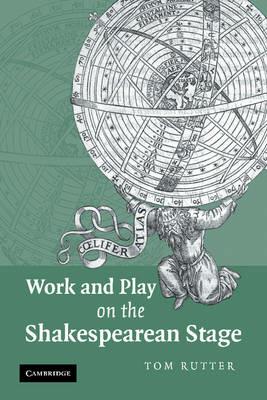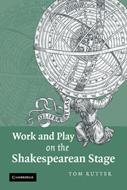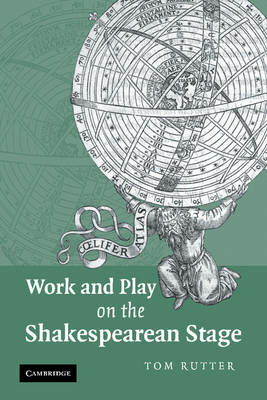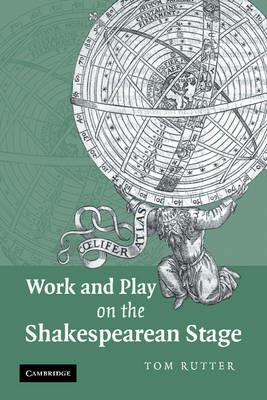Work and Play on the Shakespearean Stage
Time and again, early modern plays show people at work: shoemaking, grave-digging, and professional acting are just some of the forms of labour that theatregoers could have seen depicted on stage in 1599 and 1600. Tom Rutter demonstrates how such representations were shaped by the theatre's own problematic relationship with work: actors earned their living through playing, a practice that many considered idle and illegitimate, while plays were criticised for enticing servants and apprentices from their labour. As a result, the drama of Shakespeare's time became the focal point of wider debates over what counted as work, who should have to do it, and how it should be valued. This book describes changing beliefs about work in the sixteenth century, and shows how different ways of conceptualising the work of the governing class inform Shakespeare's histories. It identifies important contrasts between plays written for the adult and child repertories.
-
Autore:
-
Editore:
-
Anno:2011
-
Rilegatura:Paperback / softback
-
Pagine:216 p.
Le schede prodotto sono aggiornate in conformità al Regolamento UE 988/2023. Laddove ci fossero taluni dati non disponibili per ragioni indipendenti da Feltrinelli, vi informiamo che stiamo compiendo ogni ragionevole sforzo per inserirli. Vi invitiamo a controllare periodicamente il sito www.lafeltrinelli.it per eventuali novità e aggiornamenti.
Per le vendite di prodotti da terze parti, ciascun venditore si assume la piena e diretta responsabilità per la commercializzazione del prodotto e per la sua conformità al Regolamento UE 988/2023, nonché alle normative nazionali ed europee vigenti.
Per informazioni sulla sicurezza dei prodotti, contattare productsafety@feltrinelli.it



